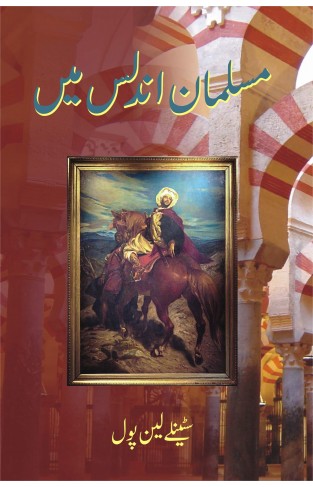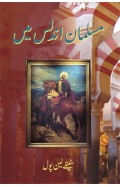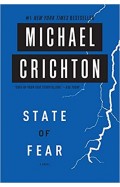Musalman Ondlus May
By: Stanley Lane-Poole
-
Rs 288.00
- Rs 480.00
- 40%
You save Rs 192.00.
Due to constant currency fluctuation, prices are subject to change with or without notice.
Musulman Andalus Mein is an Urdu translation of The Moors in Spain. This book has held its place as the classic work on the Moors in Spain: a scholarly, wonderfully readable and sweeping tale of splendor and tragedy.
One of the interesting things author does,is to bring the kind of clear-headedness one expects from the best historians to the task of revealing some of the distortions which characterize much of what has been written about Spain under Moorish rule. He points out that the Moorish invasion in A.D. 711 resulted in the sharing of many Islamic scientific and philosophical works with Western Christendom. One of the greatest centers of learning and intellectual interaction between cultures was at Toledo, site of a great translation school where works were translated from Arabic to Spanish and then into Latin. These translated works then made their way to Christian civilizations where they influenced the development of Europe.
While the magnificent grand mosque of Cordoba and the lovely palace of Granada still stand in mute testimony to the Moorish sense of grace and style in architecture, it is glimpses of the lives of the common people Muslim, Christian, and Jew which capture the richness and diversity of life in Moorish Spain. Al-Andalus was characterized not so much by the assimilation of one culture or religion by another but by a sense of coexistence which resonates throughout Spain to this day.
Musulman Andalus Mein is an Urdu translation of The Moors in Spain. This book has held its place as the classic work on the Moors in Spain: a scholarly, wonderfully readable and sweeping tale of splendor and tragedy.
One of the interesting things author does,is to bring the kind of clear-headedness one expects from the best historians to the task of revealing some of the distortions which characterize much of what has been written about Spain under Moorish rule. He points out that the Moorish invasion in A.D. 711 resulted in the sharing of many Islamic scientific and philosophical works with Western Christendom. One of the greatest centers of learning and intellectual interaction between cultures was at Toledo, site of a great translation school where works were translated from Arabic to Spanish and then into Latin. These translated works then made their way to Christian civilizations where they influenced the development of Europe.
While the magnificent grand mosque of Cordoba and the lovely palace of Granada still stand in mute testimony to the Moorish sense of grace and style in architecture, it is glimpses of the lives of the common people Muslim, Christian, and Jew which capture the richness and diversity of life in Moorish Spain. Al-Andalus was characterized not so much by the assimilation of one culture or religion by another but by a sense of coexistence which resonates throughout Spain to this day.
Zubin Mehta: A Musical Journey (An Authorized Biography)
By: VOID - Bakhtiar K. Dadabhoy
Rs 630.00 Rs 1,050.00 Ex Tax :Rs 630.00
Reconciliation - Islam, Democracy, and the West
By: Benazir Bhutto
Rs 355.50 Rs 395.00 Ex Tax :Rs 355.50
The Origins of Political Order From Prehuman Times to the French RevolutioN
By: Francis Fukuyama
Rs 3,505.50 Rs 3,895.00 Ex Tax :Rs 3,505.50
Manning Up: How the Rise of Women Has Turned Men into Boys
By: Kay Hymowitz
Rs 796.00 Rs 995.00 Ex Tax :Rs 796.00
The Obama Syndrome: Surrender At Home War Abroad
By: Tariq Ali
Rs 1,165.50 Rs 1,295.00 Ex Tax :Rs 1,165.50
The Quest For Meaning: Developing A Philosophy Of Pluralism
By: Tariq Ramadan
Rs 1,255.50 Rs 1,395.00 Ex Tax :Rs 1,255.50
The Pakistan US Conundrum Jihadists The Military And The People The Struggle For Control
By: Yunas Samad
Rs 1,255.50 Rs 1,395.00 Ex Tax :Rs 1,255.50
An Enemy We Created: The Myth Of The Taliban Al Qaeda Merger In Afghanistan 19702010
By: Alex Strick van Linschoten
Rs 4,200.00 Rs 5,250.00 Ex Tax :Rs 4,200.00
WikiLeaks: Inside Julian Assanges War on Secrecy
By: David Leigh & Luke Harding
Rs 680.00 Rs 850.00 Ex Tax :Rs 680.00
Reconciliation - Islam, Democracy, and the West
By: Benazir Bhutto
Rs 355.50 Rs 395.00 Ex Tax :Rs 355.50
No recently viewed books available at the moment.
Zubin Mehta: A Musical Journey (An Authorized Biography)
By: VOID - Bakhtiar K. Dadabhoy
Rs 630.00 Rs 1,050.00 Ex Tax :Rs 630.00
Reconciliation - Islam, Democracy, and the West
By: Benazir Bhutto
Rs 355.50 Rs 395.00 Ex Tax :Rs 355.50














-120x187.jpg?q6)





-120x187.jpg?q6)



-120x187.jpg?q6)



-120x187.jpg?q6)



